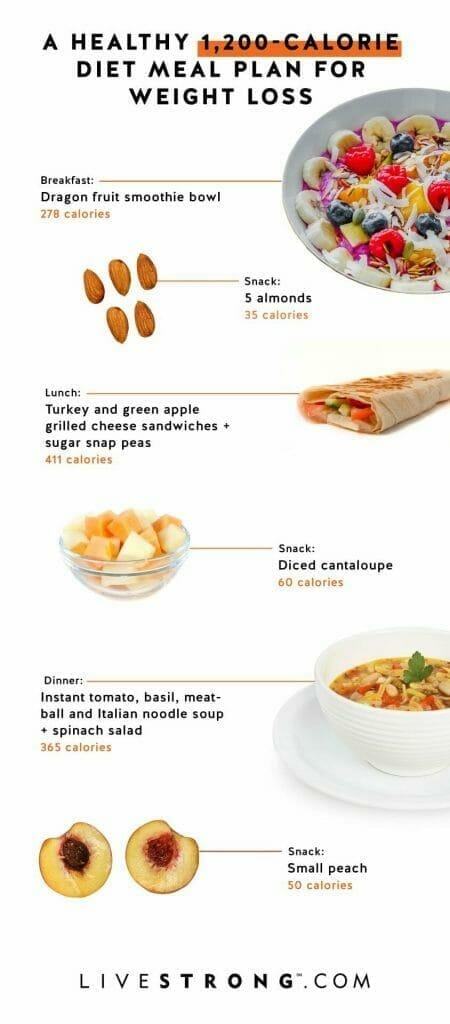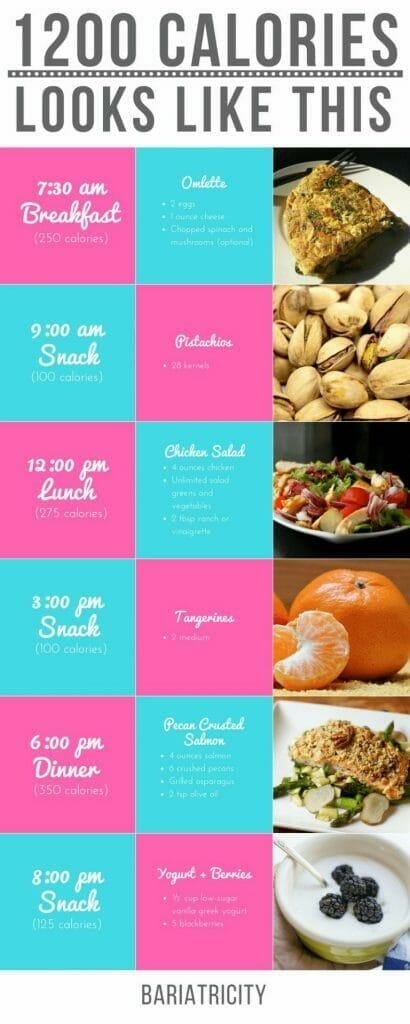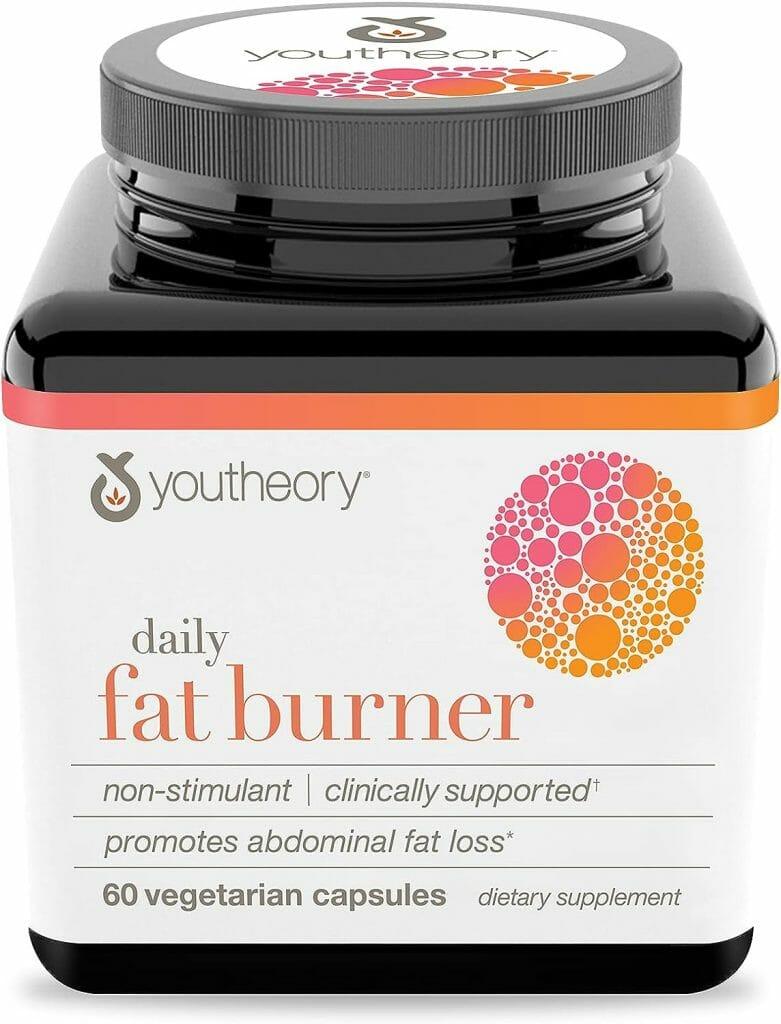Curious if sticking to a 1200-calorie diet will help you shed those unwanted pounds? The answer might surprise you. In this article, we’ll delve into the question of whether or not eating 1200 calories a day will lead to weight loss. Explore the potential benefits and possible challenges of this calorie-restricted diet, allowing you to make an informed decision about your weight loss journey.
Understanding Caloric Intake
The role of calories in weight loss
When it comes to weight loss, understanding caloric intake is crucial. Calories are units of energy that we obtain from the food and beverages we consume. In simple terms, the balance between the calories we consume and the calories we burn throughout the day determines whether we gain, maintain, or lose weight. In order to shed unwanted pounds, one must create a calorie deficit – consuming fewer calories than the body needs, prompting it to tap into stored fat for energy and resulting in weight loss.
How calories are calculated
Calories are calculated by considering the macronutrient composition of foods: carbohydrates, proteins, and fats. Carbohydrates and proteins provide 4 calories per gram, while fats provide 9 calories per gram. By multiplying the grams of each macronutrient in a food by their respective calorie values and summing them together, you can estimate the total calories in that food item.
The types of calories
While calories are all units of energy, it is important to understand that not all calories are created equal. Different types of calories affect the body in different ways. For example, 100 calories from a sugary soda will have a different impact on your health and weight compared to 100 calories from a nutrient-dense salad. Nutrient-dense foods such as fruits, vegetables, lean proteins, and whole grains not only provide essential vitamins and minerals but also promote satiety, making it easier to stick to a lower-calorie diet. On the other hand, empty calories from sugary beverages, processed snacks, and unhealthy fats can lead to weight gain and nutrient deficiencies. So, it’s not just about the number of calories consumed, but also the quality of those calories.
The 1200-Calorie Diet
Defining the 1200-Calorie Diet
The 1200-Calorie Diet is a popular approach to weight loss that involves consuming approximately 1200 calories per day. This caloric level is considered lower than the average daily caloric needs for most individuals and is often recommended for those aiming to lose weight. The concept behind this diet is simple: by creating a significant caloric deficit, the body will burn stored fat for energy, resulting in weight loss.
Origins and popularity of the diet
The 1200-Calorie Diet has gained popularity over the years due to its simplicity and potential for producing noticeable weight loss results. While it is not clear where the diet originated, it has been endorsed by various health and fitness experts as an effective way to jumpstart weight loss and overcome weight loss plateaus.
Structuring a 1200-calorie daily meal plan
To ensure a healthy and balanced 1200-calorie daily meal plan, it is essential to focus on nutrient-dense foods that provide adequate amounts of essential vitamins, minerals, and macronutrients. This means incorporating a variety of fruits, vegetables, lean proteins, whole grains, and healthy fats into your meals. Consulting with a registered dietitian can help you create a personalized meal plan that meets your individual dietary needs and preferences.
Potential Weight Loss on a 1200-Calorie Diet
Predicted weight loss percentage
The amount of weight you can expect to lose on a 1200-calorie diet depends on various factors, including your starting weight, age, gender, activity level, and overall health. On average, a safe and sustainable weight loss goal is around 0.5 to 1 kilogram (1 to 2 pounds) per week. By maintaining a consistent calorie deficit of 500 to 1000 calories per day, it is realistic to aim for a weight loss of 5 to 8 kilograms (11 to 18 pounds) over the course of 8 to 16 weeks.
Factors affecting weight loss results
While a 1200-calorie diet can lead to significant weight loss, it is important to note that individual results can vary. Factors such as genetics, metabolism, overall health, and adherence to the diet plan can influence the speed and magnitude of weight loss. It is also worth mentioning that weight loss is not always linear, and there may be weeks where progress appears slower. Patience, consistency, and an overall focus on long-term sustainable habits are key to achieving and maintaining weight loss.
Comparison with other diets
The 1200-calorie diet is just one of many approaches to weight loss. It is important to consider personal preferences and lifestyle factors when choosing a diet plan. Some individuals may find success on a 1200-calorie diet, while others may thrive on different methods such as low-carb, high-protein diets or intermittent fasting. The key is to find a dietary approach that fits your individual needs and is sustainable in the long term.
Health Benefits and Drawbacks
Possible benefits of a 1200-Calorie Diet
The 1200-calorie diet, when properly planned and executed, can offer several potential health benefits. Weight loss itself can lead to improved metabolic health, reduced risk of chronic diseases such as type 2 diabetes and heart disease, and increased overall well-being. In addition, a lower-calorie diet can encourage mindful eating habits and promote the consumption of nutrient-dense foods.
Drawbacks and potential health risks
While there are potential benefits to a 1200-calorie diet, it is important to be aware of the drawbacks and potential health risks associated with such a low-calorie intake. Severely restricting calorie intake can lead to nutrient deficiencies, muscle loss, decreased energy levels, and even a slowdown of metabolism. It is essential to ensure adequate nutrient intake through a well-planned, balanced diet and to consult with a healthcare professional or registered dietitian before embarking on any calorie-restricted diet.
Understanding the importance of balance with restricted caloric intake
Maintaining balance and variety within a restricted caloric intake is crucial to ensure optimal health and well-being. Even when following a 1200-calorie diet, it is important to focus on consuming a diverse range of nutrient-dense foods to provide the body with essential vitamins, minerals, and macronutrients. Incorporating sources of lean protein, fruits, vegetables, whole grains, and healthy fats into your meals can help prevent nutrient deficiencies and support overall health.

Exercise and the 1200-Calorie Diet
The role of exercise in the weight loss journey
Exercise plays an important role in any weight loss journey, including a 1200-calorie diet. Physical activity not only helps burn additional calories, but it also boosts metabolism, improves cardiovascular health, enhances mood, and supports muscle maintenance. Incorporating regular exercise into your routine can help maximize the benefits of a calorie-restricted diet and promote overall well-being.
Best exercises to complement a low-calorie diet
When following a 1200-calorie diet, it is important to choose exercises that complement and support your weight loss goals. Incorporating a combination of cardiovascular exercises such as walking, jogging, cycling, or swimming, along with strength training exercises, can help increase calorie burn, build lean muscle mass, and enhance overall body composition. It is important to choose exercises that you enjoy and that align with your fitness level and goals.
Understanding caloric burn from exercise
The caloric burn from exercise varies depending on the type, intensity, and duration of the activity. While cardiovascular exercises typically burn more calories during the exercise session, strength training exercises can lead to an increase in muscle mass, which in turn elevates resting metabolic rate and enhances long-term calorie burn. It is important to keep in mind that the caloric burn from exercise is just one piece of the weight loss puzzle and should be combined with a balanced diet for optimal results.
Individual Variations and Dietary Needs
How individual characteristics affect dietary needs
Individual characteristics such as age, gender, body composition, activity level, and overall health status play a significant role in determining dietary needs. Factors like muscle mass, metabolic rate, hormonal balance, and nutritional requirements can differ from person to person. It is crucial to take these individual variations into account when designing a personalized diet plan, including a 1200-calorie diet.
Understanding personal TDEE (Total Daily Energy Expenditure)
To better understand your personal dietary needs, it is helpful to calculate your Total Daily Energy Expenditure (TDEE). TDEE represents the total number of calories your body needs to maintain its current weight, taking into account factors such as basal metabolic rate (BMR), physical activity level, and the thermic effect of food. Online calculators and apps can provide estimates for TDEE based on your individual characteristics, helping you tailor your calorie intake to achieve specific goals.
Adjustments for individual fitness goals
Individual fitness goals can range from weight loss to muscle gain or overall fitness improvement. Depending on your goals, adjustments to your 1200-calorie diet may be necessary. For example, if your aim is to build muscle, you may need to increase your protein intake while ensuring you still maintain an overall caloric deficit. Consulting with a registered dietitian or healthcare professional can provide personalized guidance and support in tailoring your diet plan to meet your specific fitness goals.

Long-Term Sustainability of the 1200-Calorie Diet
Analyzing the maintainability of the diet
One of the key considerations when evaluating any diet plan is its long-term sustainability. While a 1200-calorie diet can be effective for short-term weight loss, it may not be sustainable for everyone in the long run. Severely restricting calorie intake can lead to feelings of deprivation, low energy levels, and a higher risk of nutrient deficiencies. It is important to find a balance between weight loss goals and maintaining a healthy relationship with food and your body.
Potential long-term effects on metabolism
Consistently following a 1200-calorie diet for an extended period can potentially lead to a slowdown in metabolism. This is because the body adapts to a lower-calorie intake by reducing energy expenditure in an effort to conserve energy. To counteract this potential effect, it is important to incorporate regular strength training exercises, maintain adequate protein intake, and periodically reassess and adjust calorie intake as needed. It is also advisable to have regular check-ins with a healthcare professional or registered dietitian to monitor your metabolic health.
Adaption strategies for long-term health
To promote long-term health and maintain a balanced approach to nutrition, it is important to consider adaption strategies when following a 1200-calorie diet. These strategies may include incorporating regular “diet breaks” where you increase your calorie intake for a short period, practicing intuitive eating to develop a healthy relationship with food, focusing on whole foods and balanced macronutrient distribution, and seeking ongoing support from healthcare professionals or registered dietitians. Remember, a sustainable and healthy lifestyle is a continuous journey that goes beyond any specific diet plan.
Case Studies of 1200-Calorie Diets
Success stories of weight loss
Many individuals have experienced success in their weight loss journey while following a 1200-calorie diet. These success stories often showcase significant weight loss, improved overall health markers, increased self-confidence, and enhanced quality of life. It is important to note that individual results can vary, and what works for one person may not work for another. It is always recommended to consult with a healthcare professional or registered dietitian before making any drastic changes to your diet or lifestyle.
Less successful or negative experiences
While there are success stories, it is essential to acknowledge that not everyone will have the same experience with a 1200-calorie diet. Some individuals may find it difficult to adhere to such a low-calorie intake, experience feelings of deprivation, or struggle with low energy levels and fatigue. Negative experiences can result from various factors such as unrealistic expectations, improper meal planning, or underlying health conditions. Listening to your body, seeking professional guidance, and focusing on sustainable habits are key to navigating any potential challenges.
Dietary professionals’ opinion on 1200-cal diets
Opinions among dietary professionals regarding 1200-calorie diets can vary. While some professionals believe that such low-calorie diets can be effective for weight loss, they emphasize the importance of proper planning, monitoring, and ongoing support to ensure nutrient adequacy and minimize potential negative effects. Registered dietitians and healthcare professionals can provide valuable insights and personalized advice to help individuals achieve their weight loss goals in a safe and sustainable manner.
Alternatives to the 1200-Calorie Diet
Higher Calories diet plans
For individuals who find it challenging to adhere to a 1200-calorie diet or who have higher energy needs due to their lifestyle or fitness goals, higher-calorie diet plans may be more suitable. The specific caloric intake will vary depending on individual factors, but it generally involves consuming more calories than a 1200-calorie diet while still maintaining a healthy calorie deficit for weight loss. Consulting with a registered dietitian can help determine the appropriate caloric intake and macronutrient distribution for your specific needs.
Intermittent fasting
Intermittent fasting has gained popularity as an alternative approach to weight loss. This eating pattern involves cycling between periods of fasting and eating. Common methods of intermittent fasting include the 16/8 method (16 hours of fasting, 8 hours of eating) or alternate-day fasting. While intermittent fasting can result in weight loss, it is important to ensure proper nutrient intake during eating periods and to listen to your body’s hunger and fullness cues. Consulting with a healthcare professional or registered dietitian can help determine if intermittent fasting is a suitable approach for you.
Flexible dieting
Flexible dieting, also known as “If It Fits Your Macros” (IIFYM), emphasizes the importance of meeting individual macronutrient goals while allowing flexibility in food choices. This approach focuses on a balanced intake of proteins, carbohydrates, and fats within predetermined targets, rather than strict calorie limits. Flexible dieting can be personalized to accommodate various caloric needs and offers individuals the freedom to include their favorite foods in moderation while still progressing toward their weight loss goals. It is important to prioritize nutrient-dense foods while following this approach and to seek guidance from a registered dietitian to ensure optimal results.
Conclusion: Is 1200 Calories a Day Right for You?
Weighing the pros and cons
When considering a 1200-calorie diet, it is important to weigh the pros and cons based on your individual circumstances, preferences, and goals. The potential benefits of weight loss, improved metabolic health, and increased overall well-being should be balanced against the potential drawbacks, such as nutrient deficiencies and metabolic adaptations. Consulting with a registered dietitian or healthcare professional can provide personalized guidance in assessing the suitability of a 1200-calorie diet for you.
Determining personal dietary needs
Determining your personal dietary needs requires consideration of factors such as age, gender, activity level, overall health, and weight loss goals. Calculating your Total Daily Energy Expenditure (TDEE), seeking professional guidance, and evaluating your individual characteristics and preferences can help tailor a diet plan that supports your overall health and weight loss goals.
Making a healthy choice for your lifestyle
Ultimately, choosing the right dietary approach is about finding a sustainable and healthy choice for your lifestyle. The 1200-calorie diet can be effective for weight loss, but it may not be suitable or sustainable for everyone. It is important to prioritize long-term health, listen to your body’s needs, seek professional guidance when needed, and focus on developing a positive and balanced relationship with food. Remember, the journey to a healthy lifestyle is a personal one and should be approached with patience, consistency, and self-care.









Leave a Reply
You must be logged in to post a comment.